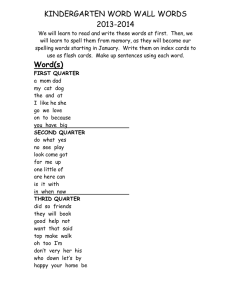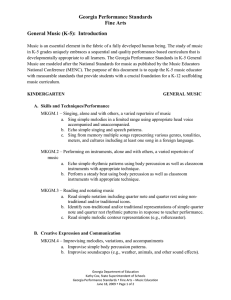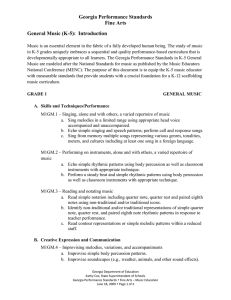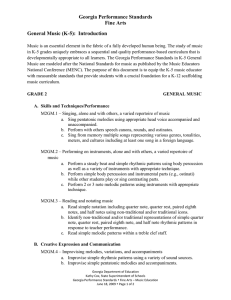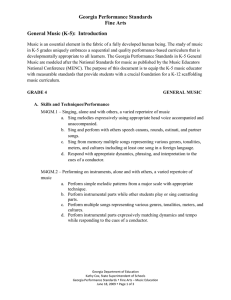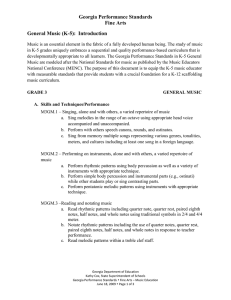Science Curriculum: (Biology) Block Schedule Georgia Performance Standards: Year Curriculum Map
advertisement
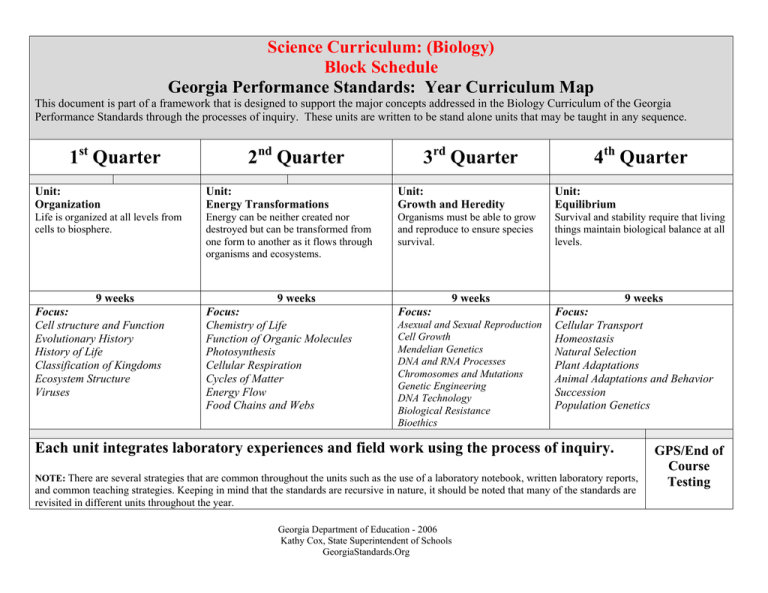
Science Curriculum: (Biology) Block Schedule Georgia Performance Standards: Year Curriculum Map This document is part of a framework that is designed to support the major concepts addressed in the Biology Curriculum of the Georgia Performance Standards through the processes of inquiry. These units are written to be stand alone units that may be taught in any sequence. 1st Quarter 2nd Quarter 3rd Quarter 4th Quarter Unit: Organization Unit: Energy Transformations Unit: Growth and Heredity Unit: Equilibrium Life is organized at all levels from cells to biosphere. Energy can be neither created nor destroyed but can be transformed from one form to another as it flows through organisms and ecosystems. Organisms must be able to grow and reproduce to ensure species survival. Survival and stability require that living things maintain biological balance at all levels. 9 weeks Focus: Cell structure and Function Evolutionary History History of Life Classification of Kingdoms Ecosystem Structure Viruses 9 weeks Focus: Chemistry of Life Function of Organic Molecules Photosynthesis Cellular Respiration Cycles of Matter Energy Flow Food Chains and Webs 9 weeks Focus: Asexual and Sexual Reproduction Cell Growth Mendelian Genetics DNA and RNA Processes Chromosomes and Mutations Genetic Engineering DNA Technology Biological Resistance Bioethics 9 weeks Focus: Cellular Transport Homeostasis Natural Selection Plant Adaptations Animal Adaptations and Behavior Succession Population Genetics Each unit integrates laboratory experiences and field work using the process of inquiry. NOTE: There are several strategies that are common throughout the units such as the use of a laboratory notebook, written laboratory reports, and common teaching strategies. Keeping in mind that the standards are recursive in nature, it should be noted that many of the standards are revisited in different units throughout the year. Georgia Department of Education - 2006 Kathy Cox, State Superintendent of Schools GeorgiaStandards.Org GPS/End of Course Testing

